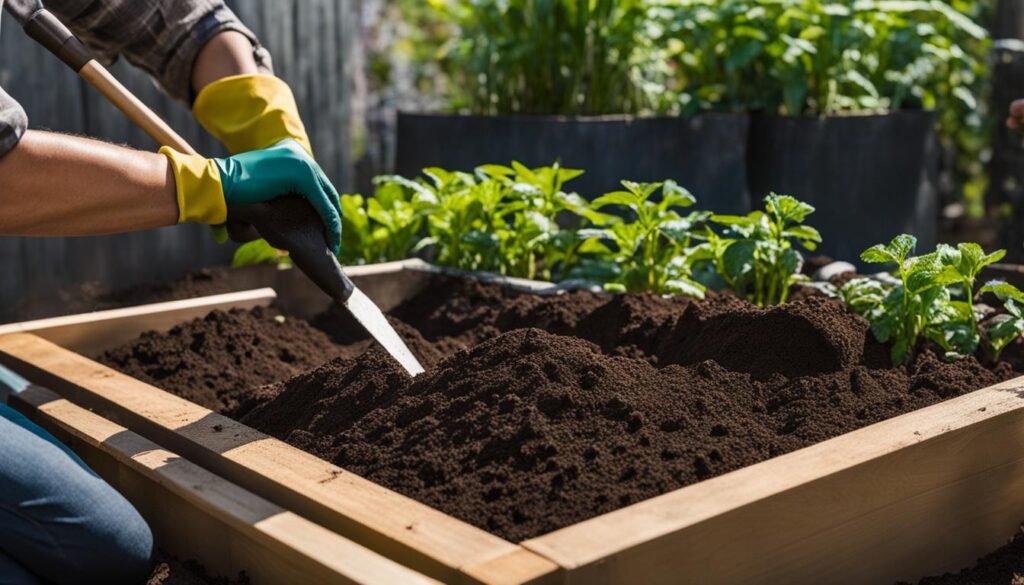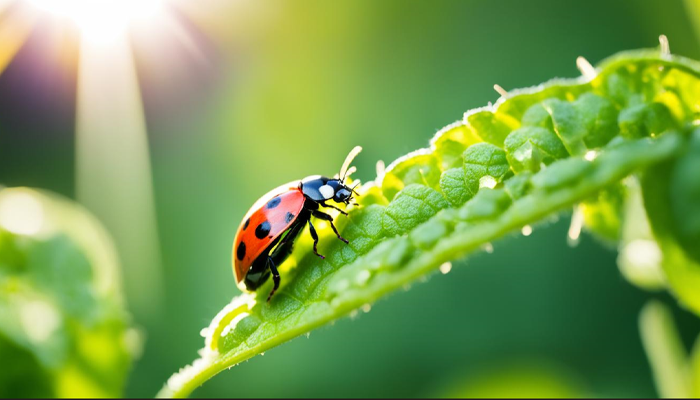Gardening is a fulfilling and rewarding hobby that allows you to connect with nature and create beautiful spaces. Whether you have a small balcony or a spacious backyard, learning the basics of gardening is essential to ensure a thriving garden. In this guide for Gardening Basics , I will take you through everything you need to know to get started on your gardening journey.
Table of Contents
Benefits of Gardening
Gardening offers a multitude of benefits that go beyond just the beauty of your surroundings. It is a great way to relieve stress and improve mental well-being. Spending time outdoors, tending to your plants, and engaging with nature can be an excellent form of therapy. Gardening also provides a sense of accomplishment as you witness the fruits of your labor grow and flourish.
Additionally, gardening promotes physical activity, helping you stay fit and active. Digging, planting, weeding, and watering all contribute to a healthy lifestyle. It is also a fantastic way to educate children about nature and the environment, as they learn about the life cycle of plants and the importance of taking care of our planet.
Essential Gardening basics Tool and Equipment
To embark on your gardening journey, it is important to have the right tools and equipment. Some gardening basics tools include a spade or shovel, a rake, a hand trowel, and pruning shears. These tools will help you with tasks such as digging, raking, planting, and pruning. Investing in good quality tools will ensure they last longer and make your gardening experience more enjoyable.
Check here our best pick for essential gardening tool kit :

Understanding Soil and Its Importance in Gardening
Soil is the foundation of a successful garden, and understanding its composition and characteristics is crucial. Different plants thrive in different types of soil, so it is essential to know the soil in your garden. Conduct a soil test to determine its pH level, nutrient content, and drainage capacity. This will help you make informed decisions about the plants you choose to grow.
Adding organic matter, such as compost or well-rotted manure, to your soil improves its structure and fertility. This allows plants to access essential nutrients and moisture more easily. Regularly amending your soil will create a healthy environment for your plants to grow and flourish.
Choosing the Right Plants for Your Garden
Selecting the right plants for your garden is vital to ensure their success. Consider factors such as your climate, available sunlight, and the type of soil in your garden. Research which plants are native or well-suited to your region, as they are more likely to thrive in your specific conditions.
When choosing plants, pay attention to their growth habits, size, and maintenance requirements. Some plants may require more frequent watering or pruning, while others may be more drought-tolerant or low-maintenance. By selecting the right plants for your garden, you will set yourself up for success and reduce the risk of disappointment.
Gardening Basics Technique for Beginners
As a beginner gardener, it’s important to familiarize yourself with some basic gardening techniques. One of the most important techniques is proper watering. Different plants have different watering needs, so it’s essential to water them accordingly. Overwatering or underwatering can lead to plant stress or even death. Learn to observe your plants and adjust your watering routine accordingly.
Another crucial technique is proper planting. Ensure your plants have enough space to grow by following the recommended spacing guidelines. Dig a hole slightly larger than the plant’s root ball and gently place it in, ensuring it is at the same depth as it was in its original container. Backfill the hole with soil and gently firm it around the plant.

Tips for Maintaining a Thriving Garden
Maintaining a thriving garden requires consistent care and attention. Regularly check for pests and diseases and take appropriate action if needed. Remove weeds promptly to prevent them from competing with your plants for nutrients and water. Prune your plants regularly to promote healthy growth and remove any dead or damaged branches.
Mulching is another essential maintenance practice. Apply a layer of organic mulch around your plants to suppress weeds, retain moisture, and regulate soil temperature. Mulching also adds organic matter to the soil as it breaks down over time.
Starting Your Own Gardening Business: Steps and Considerations
If you have a passion for gardening and want to turn it into a business, starting your own gardening business can be a fulfilling endeavor. Begin by identifying your target market and the services you want to offer. Will you focus on residential gardening or commercial landscaping? Will you provide design services or specialize in maintenance?
Next, develop a business plan outlining your goals, marketing strategies, and financial projections. Consider obtaining any necessary licenses or certifications and invest in quality tools and equipment. Network with other professionals in the industry and build a strong online presence to attract clients.
Resources for Learning and Mastering Gardening Basics
To further enhance your gardening skills and knowledge, there are a variety of resources available. Join local gardening clubs or organizations to connect with fellow enthusiasts and learn from experienced gardeners. Attend workshops, seminars, or online courses to gain insights into specific aspects of gardening.
Take advantage of online forums, gardening blogs, and books to expand your understanding of different plants and gardening techniques. Experiment in your own garden and learn from your successes and failures. The more you immerse yourself in the world of gardening, the more you will master the basics and develop your own gardening style.
Conclusion: Start Your Gardening Journey Today!
Gardening is a lifelong journey of learning and growth. By mastering the basics, you will lay a solid foundation for a thriving garden. Remember to choose the right plants, understand your soil, and implement proper gardening techniques. Regular maintenance and care will ensure your garden flourishes and brings you joy.
So, whether you have a green thumb or are just starting out, embrace the world of gardening and create your own little paradise. Start your gardening journey today and experience the countless joys and rewards it has to offer. Happy gardening!
CTA: Start your gardening journey today by planting your first seed or visiting a local garden center to explore the world of plants and gardening tools.
FAQ :Gardening Basics
What are the basic gardening tools I need to get started?
The essential gardening tools for beginners include hand trowels, garden gloves, pruning shears, and a watering can or hose.
How do I choose the right location for my garden?
When selecting a garden location, consider factors such as sunlight, soil quality, water access, and protection from the elements.
What steps should I take to prepare my garden bed?
To prepare your garden bed, clear the area of any debris, till the soil to loosen it, and enrich it with organic matter or compost.
How do I properly plant and maintain my garden?
Properly space and plant your vegetables, water them regularly, apply mulch to retain moisture and suppress weeds, implement pest control measures, and harvest your crops at the right time.
What are some tips for successful gardening?
Some tips for successful gardening include practicing weed control, avoiding overwatering, properly cleaning plant leaves, and regular care and maintenance.
Can I start my own gardening business?
Yes, starting your own gardening business is possible! With the right knowledge and skills, you can turn your love for gardening into a profitable venture.
How do I get started with gardening?
To get started with gardening, familiarize yourself with the basics, acquire the necessary tools, select a suitable garden location, prepare the soil, and start planting and maintaining your garden.
You might also be interested in:


